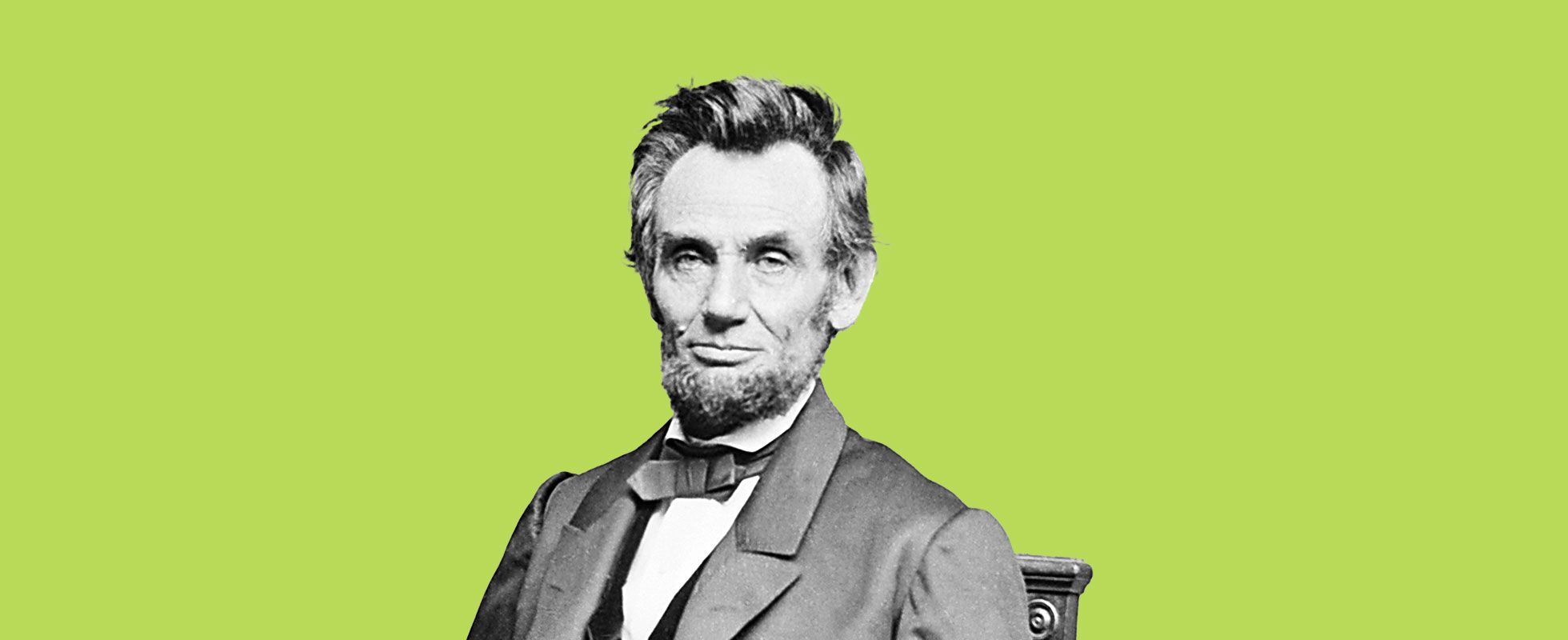Abraham Lincoln was born into poverty in 1809, in a humble log cabin in Kentucky. Self-educated, he rose up to become a lawyer, then a politician, and then, ultimately, the 16th President of the United States. He held the nation’s highest office from 1861 until his assassination in 1865, during which time he led the country through the American Civil War and brought about the abolition of slavery.
Among Lincoln’s many talents as a leader was his ability to write speeches of the highest order — perhaps none more eloquent or more famous than his first inaugural address, in which he talked of “the mystic chords of memory” and “the better angels of our nature.” Beyond his formal addresses, the President was also known for his sense of humor and love of jokes, which he scattered around liberally when the setting allowed.
Despite his ability with the pen, Lincoln wasn’t what most would consider a natural orator. His voice, according to many accounts, was high-pitched and reedy; some even called it shrill. His accent was a blend of Indiana and Kentucky, which wasn’t always appealing to audiences in Boston or New York.
But what Lincoln lacked in appearance and delivery, he more than made up for with the sheer strength of his words and ideas — as evidenced by his most insightful and memorable quotes.
In great contests each party claims to act in accordance with the will of God. Both may be, and one must be, wrong.
No man is good enough to govern another man, without that other's consent.
The dogmas of the quiet past, are inadequate to the stormy present … As our case is new, so we must think anew, and act anew.
A man watches his pear-tree day after day, impatient for the ripening of the fruit. Let him attempt to force the process, and he may spoil both fruit and tree. But let him patiently wait, and the ripe pear at length falls into his lap.
I shall try to correct errors when shown to be errors; and I shall adopt new views so fast as they shall appear to be true views.
As I would not be a slave, so I would not be a master. This expresses my idea of democracy. Whatever differs from this, to the extent of the difference, is no democracy.
Think you these places would satisfy an Alexander, a Caesar, or a Napoleon? Never! Towering genius disdains a beaten path. It seeks regions hitherto unexplored.
Adhere to your purpose and you will soon feel as well as you ever did. On the contrary, if you falter, and give up, you will lose the power of keeping any resolution, and will regret it all your life.
The struggle of today, is not altogether for today — it is for a vast future also.
When we were the political slaves of King George, and wanted to be free, we called the maxim that “all men are created equal” a self-evident truth; but now when we have grown fat, and have lost all dread of being slaves ourselves, we have become so greedy to be masters that we call the same maxim “a self-evident lie.”
When the white man governs himself, that is self-government; but when he governs himself, and also governs another man, that is more than self-government — that is despotism.
Bad promises are better broken than kept.
Let us neither express nor cherish any hard feelings toward any citizen who by his vote has differed with us. Let us at all times remember that all American citizens are brothers of a common country, and should dwell together in the bonds of fraternal feeling.
The true rule, in determining to embrace or reject anything, is not whether it have any evil in it, but whether it have more of evil than of good.
With malice toward none; with charity for all; with firmness in the right, as God gives us to see the right, let us strive on to finish the work we are in; to bind up the nation’s wounds.
Leave nothing for tomorrow which can be done today.
Featured image credit: Donaldson Collection/ Michael Ochs Archives via Getty Images
















